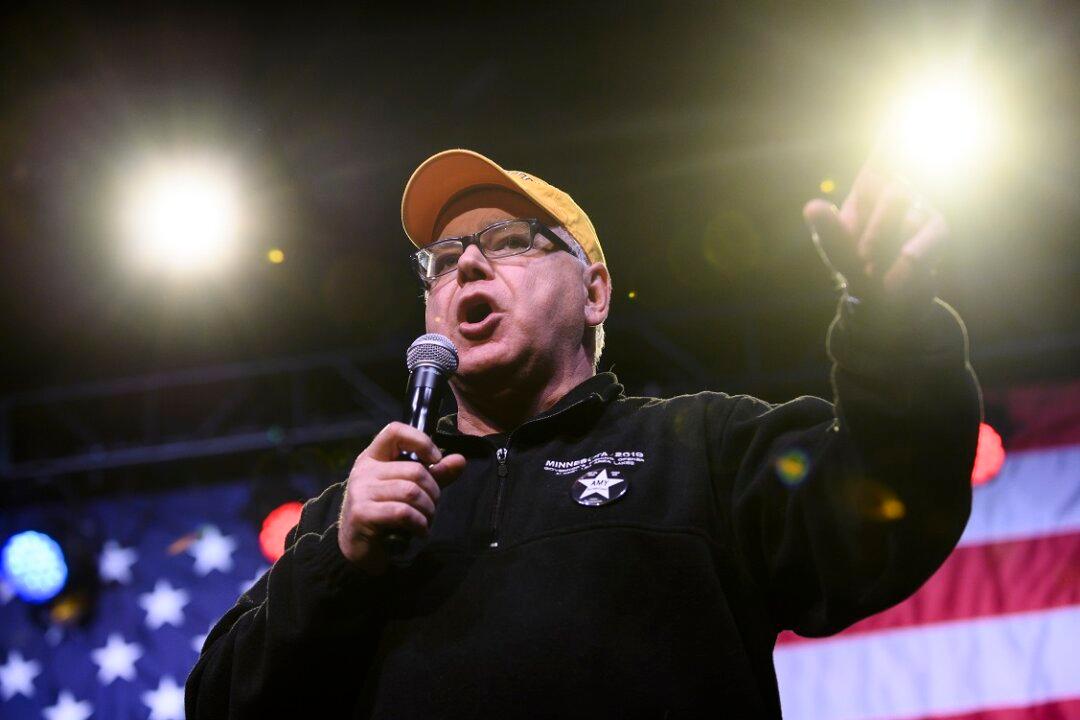Claiming overreach, Minnesota churches and small business owners have filed a federal lawsuit to strike down Democratic Gov. Tim Walz’s emergency orders that have largely shuttered civil society and brought economic activity close to a standstill in the state.
The lockdown in Minnesota began on March 17.





